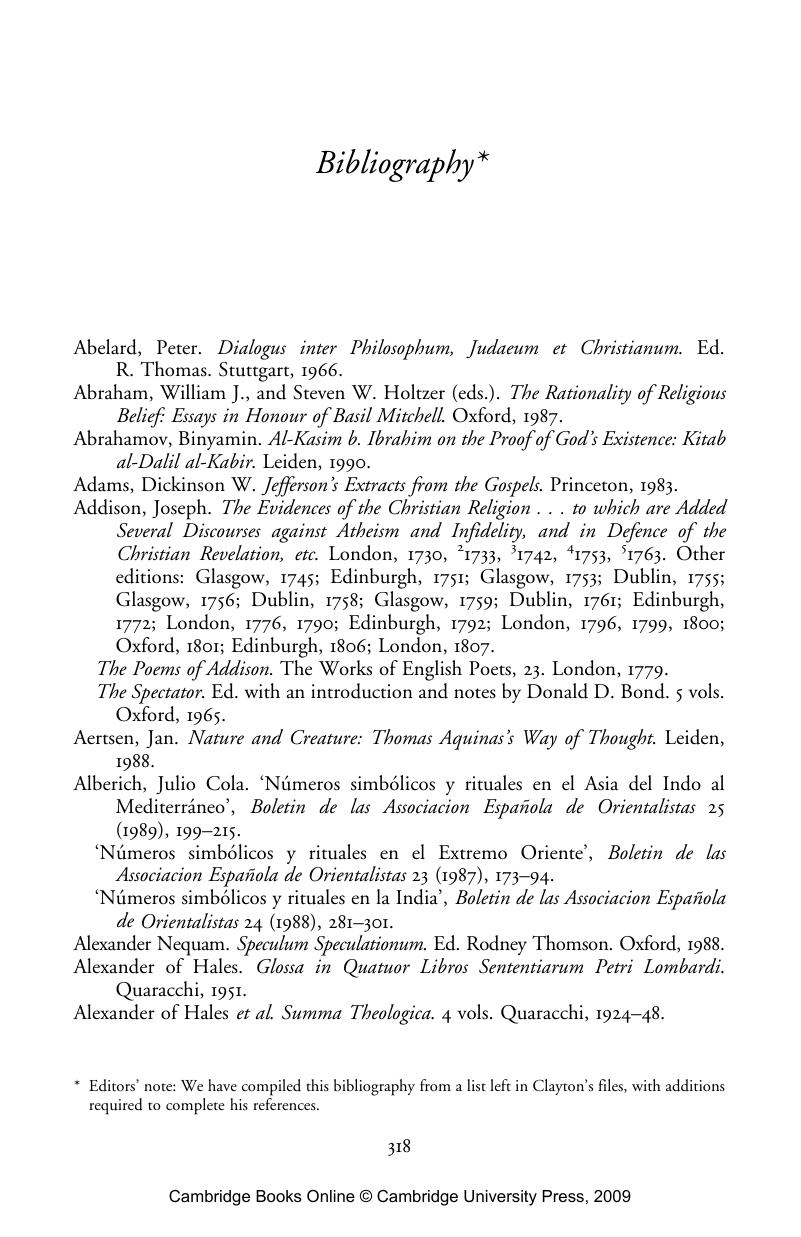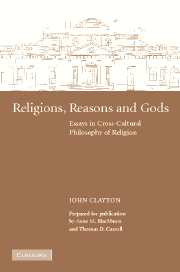Book contents
- Frontmatter
- Contents
- Editorial preface
- Acknowledgments
- List of abbreviations
- 1 Claims, contexts and contestability
- PART I REASON AND RELIGIOUS PLURALISM
- PART II THEISTIC ARGUMENTS IN PRE-MODERN CONTEXTS
- PART III THEISTIC ARGUMENTS IN EARLY-MODERN CONTEXTS
- Appendix: The 1997 Hulsean Sermon
- Bibliography
- Index
- References
Bibliography
Published online by Cambridge University Press: 22 September 2009
- Frontmatter
- Contents
- Editorial preface
- Acknowledgments
- List of abbreviations
- 1 Claims, contexts and contestability
- PART I REASON AND RELIGIOUS PLURALISM
- PART II THEISTIC ARGUMENTS IN PRE-MODERN CONTEXTS
- PART III THEISTIC ARGUMENTS IN EARLY-MODERN CONTEXTS
- Appendix: The 1997 Hulsean Sermon
- Bibliography
- Index
- References
Summary

- Type
- Chapter
- Information
- Religions, Reasons and GodsEssays in Cross-cultural Philosophy of Religion, pp. 318 - 353Publisher: Cambridge University PressPrint publication year: 2006



